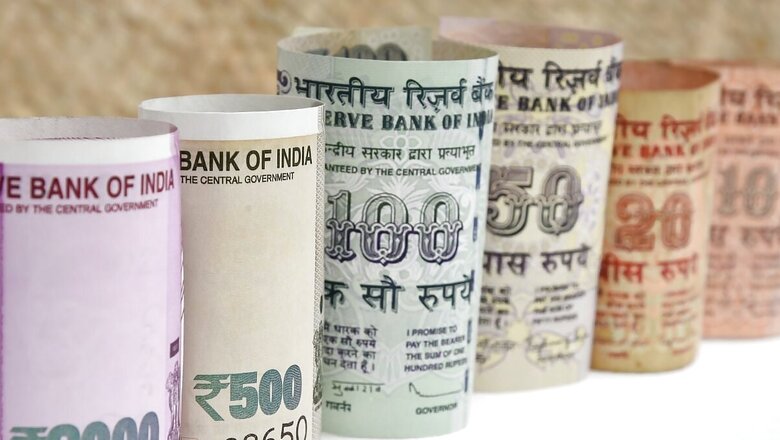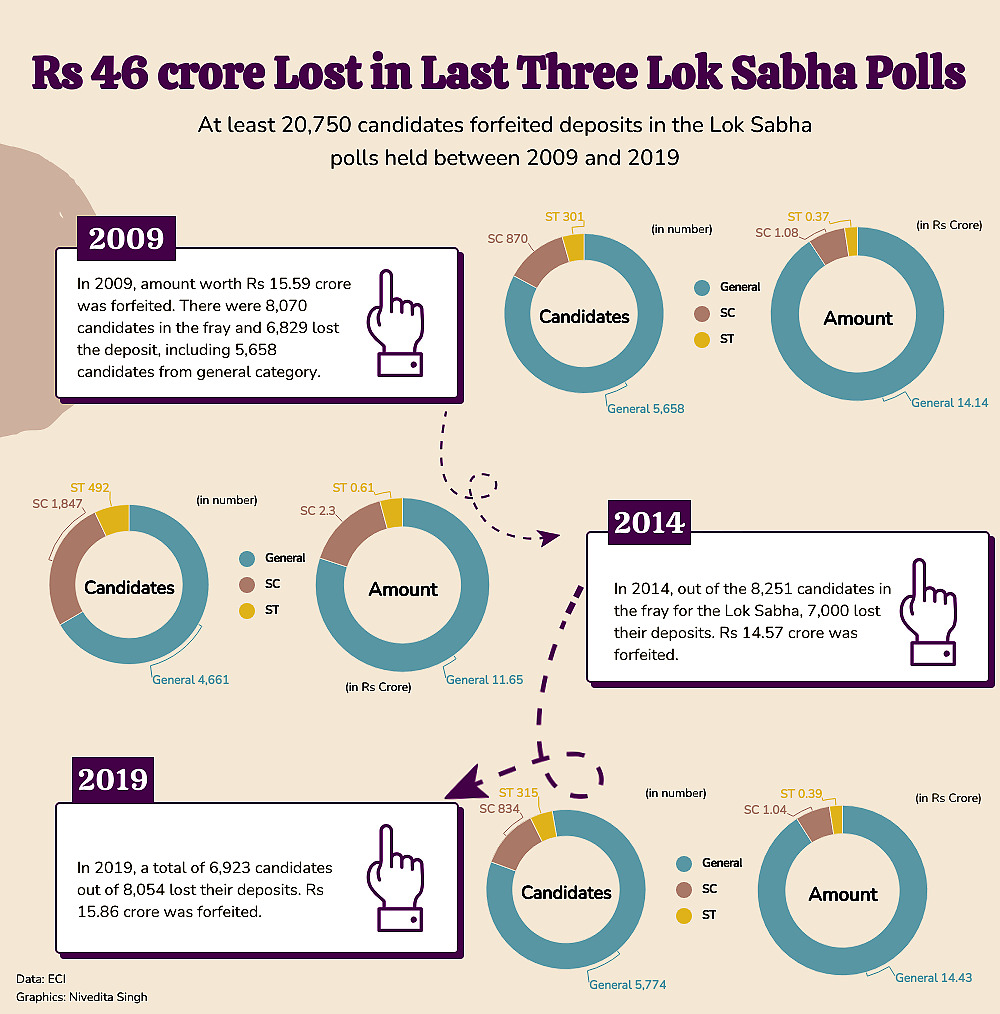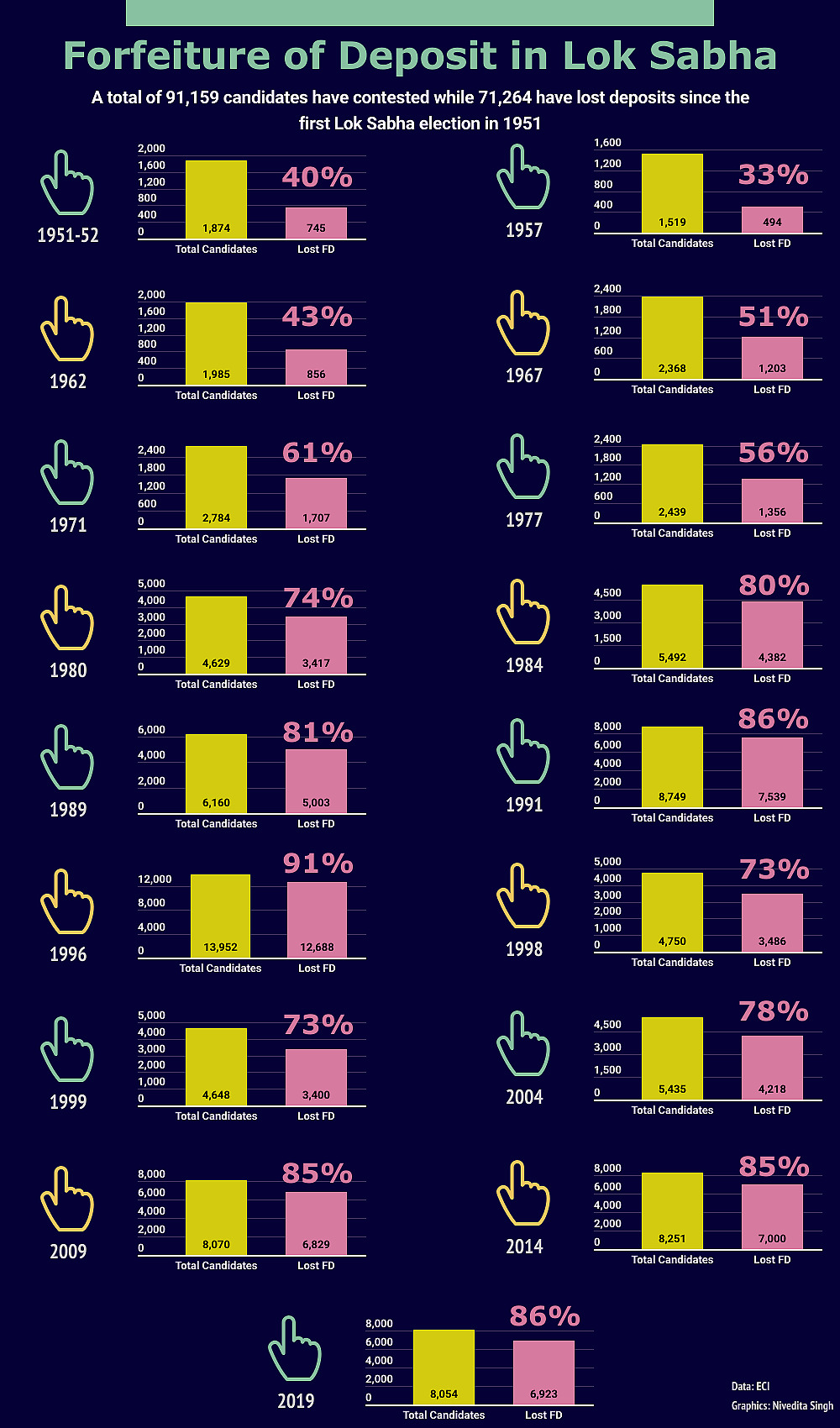
views
According to the Election Commission of India rules, a candidate contesting the Lok Sabha poll has to make a deposit of Rs 25,000 while filing the nomination. For candidates from Scheduled Castes and Scheduled Tribes, the amount is half.
After the 1999 Lok Sabha elections, there has been a consistent rise in the share of candidates losing their deposit, popularly known as ‘Zamaanat Zapt’.

In 2009, the number of candidates who lost deposits was 6,829 of the 8,070 in the fray. In 2014, of the 8,251 candidates, 7,000 lost their deposits. In 2019, this share was 6,923 out of 8,054 candidates.
The ECI numbers analysed by News18 show that almost 85 per cent candidates who fought Lok Sabha polls in 2009, 2014 and 2019 have lost their security deposits as they failed to get a minimum of one-sixth of the total valid votes polled.
Between 2009 and 2019, a total of 24,375 candidates contested the election and 20,752 lost deposits. The amount that was lost in the three elections was: Rs 15.59 crore in 2009; Rs 14.57 crore in 2014; and Rs 15.86 crore in 2019.
While it may not seem to be a big number, when compared to the first Lok Sabha, the amount is significant. According to the ECI documents accessed by News18, in 1951, when simultaneous polls were held across the country, a total of 9,067 deposits were lost, amounting to Rs 22.80 lakh. There were 741 deposits worth Rs 3.51 lakh forfeited in the Lok Sabha and 8,234 deposits from the assembly polls worth Rs 19.24 lakh.
Back then, the deposit amount was Rs 500 for candidates from the general class and Rs 250 for candidates from SC and ST communities.
The analysis also shows that since 1951, the first Lok Sabha election, a total of 91,159 candidates have contested elections and 71,264 have lost deposit. This means of every 100 candidates in the fray, about 80 lost their deposits.
It was the 1996 election when 91 per cent — 12,688 out of 13,952 — candidates lost their deposits, the highest till date. This was also the election when the highest number of candidates contested for Lok Sabha till date.
After the 1996 elections, it was the 1991 elections that saw the highest number of deposits lost.

Who Takes This Money?
The deposit goes to the government treasury if a candidate fails to get a minimum of one-sixth of the total valid votes polled.
Section 158 of the Representation of the People Act, 1951, lays down the method of disposal of the deposits made by the candidates.
For every candidate filing nomination, the security deposit is a must. It is deposited with the Returning Officer in cash or a receipt showing that the amount has been deposited in the Reserve Bank of India or in Government Treasury.
When a candidate is declared a winner, or has secured more than one-sixth of the total valid votes, the RO gives them back the deposits.
The Rules
The rules say that if the candidate has polled exactly 1/6th of the total number of valid votes polled by all, the deposit will not be refunded. On the other hand, if the candidate is elected, the deposit will be refunded even if they did not poll more than 1/6th of the total valid votes.
Also, if a candidate is fighting the elections from more than one seat, they can only re-claim the deposit from one seat, irrespective of the votes they get. Other deposits made by them will be forfeited to the government.
But if the candidate is contesting for Lok Sabha and assembly polls in simultaneous elections, they can get the return of deposits made in both the elections, if they are entitled for it, as the two elections are different.
The money is also refunded if the candidate is not shown in the list of contesting candidates or if they die before the commencement of the poll
Also, candidates who file multiple nominations from the same seat can get the money back from the extra nominations after the publication of the list of contesting candidates.
Further, the deposit can be refunded only to the person in whose name it was made in the treasury or his legal representative if they die.
The main purpose of this practice is to ensure that only genuinely interested candidates file nominations to be a part of the electoral process.
India is now gearing up for the Lok Sabha elections which will be held in seven phases, starting April 19. The results for the polls will be declared on June 4.


















Comments
0 comment